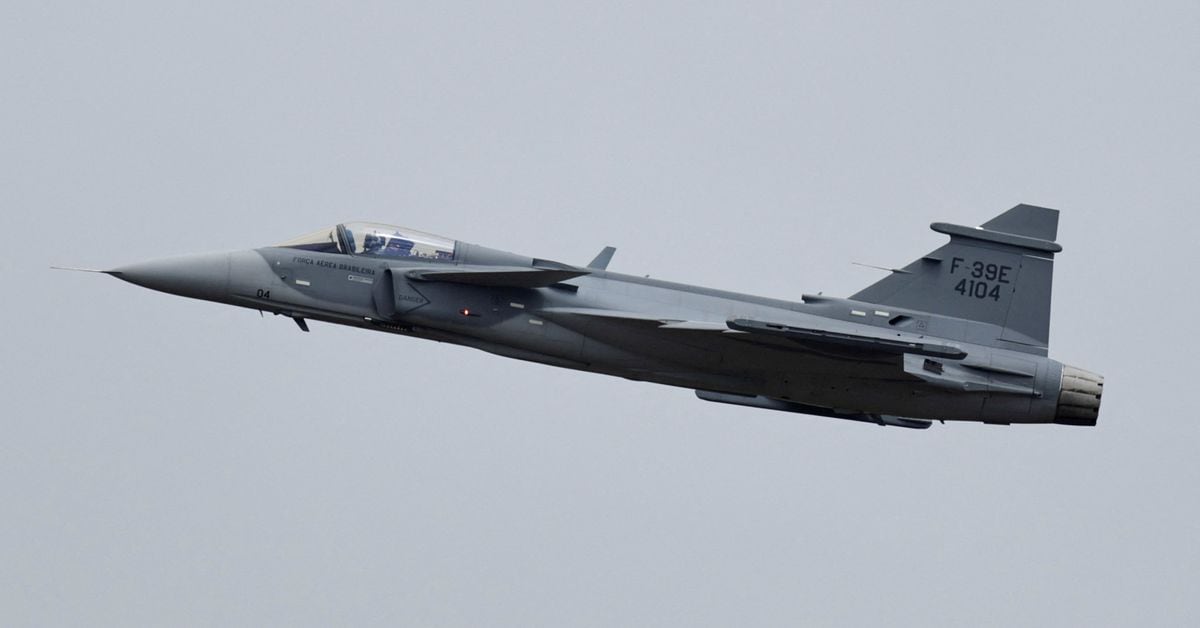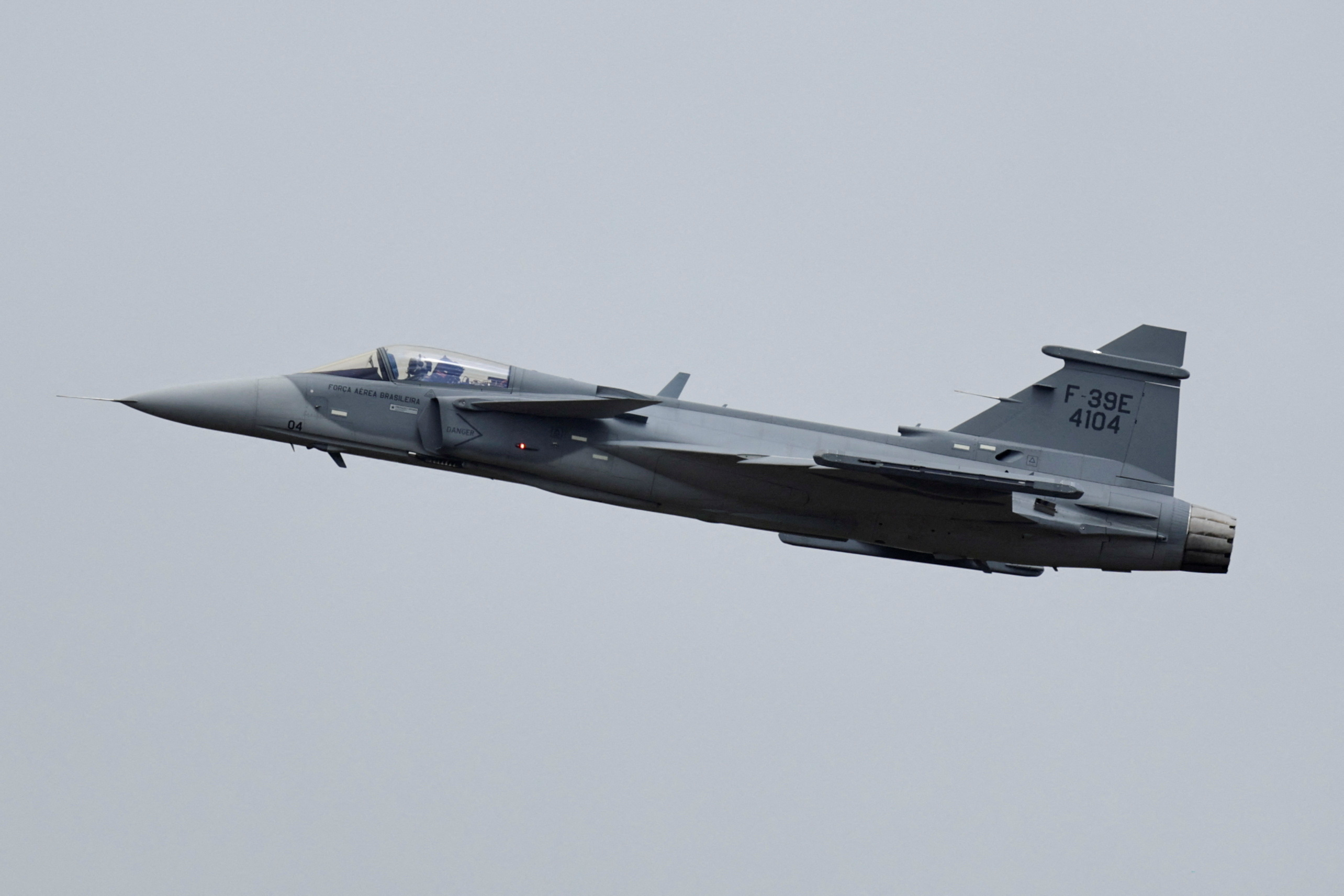
Brazil may buy more Swedish Gripen fighter jets, says minister
Brazil is analyzing the option of expanding an order for Swedish manufacturer Saab's Gripen fighter jets, though the number of additional aircraft which could be bought has yet to be determined, Defense Minister Jose Mucio told Reuters Tuesday.

Brazilian Air Force's F-39 Gripen fighter flies during a ceremony to mark the beginning of operational activities of the F-39 Gripen fighters, at Anapolis Air Force Base in Anapolis, Goias state, Brazil December 19, 2022. REUTERS/Ueslei Marcelino
RIO DE JANEIRO, April 11 (Reuters) - Brazil is analyzing the option of expanding an order for Swedish manufacturer Saab's (SAABb.ST) Gripen fighter jets, though the number of additional aircraft which could be bought has yet to be determined, Defense Minister Jose Mucio told Reuters Tuesday.
"The Brazilian Air Force said it has need (for more Gripen fighters). We are looking at this and studying it," Mucio said during the Laad defense industry trade show in Rio de Janeiro.
"Just this week we spoke with the ambassador of Sweden about this and it is a conversation that is just beginning," he added.
In 2014, Brazil signed a deal to purchase 36 Gripen fighter jets for its Air Force with the goal of modernizing its fleet. The agreement also allows Gripens to be produced in the country in the future.
The first aircraft have already been delivered to Brazil and the remainder are expected to be delivered by 2027.
A source with knowledge of the situation said the initial order could be expanded to 40 aircraft. The negotiations would involve forgoing some equipment and ammunition in exchange for "credit" toward the purchase of the four additional jets.
Demand is great enough that Brazil could place a second order for around 30 more jets, the source said.
"We are a large, continental country, but 36 or 40 (fighters) are enough for just one base, and we need more to cover the country," the source said. "We know it's an expensive investment, but a relevant one," the source said. "However, this second batch would be delivered over 15 years."
Reporting by Rodrigo Viga Gaier; Editing by Chizu Nomiyama
